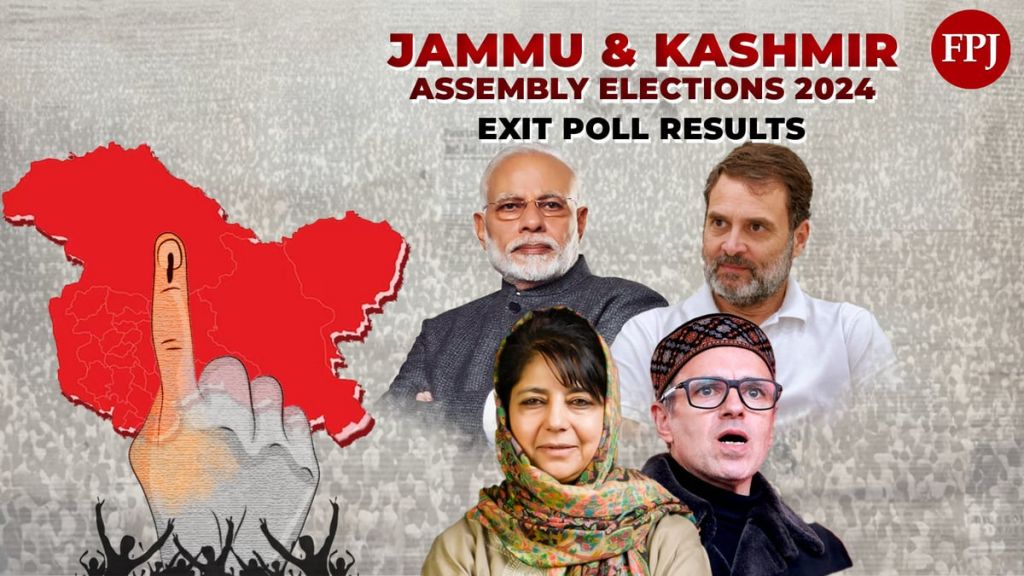
The Congress-NC partnership is likely to secure a victory with the support of smaller regional parties in Jammu and Kashmir as predicted by major exit polls on Saturday.
Here is what credible exit polls whose predictions in the past were close to the real number say about the possible election results in Jammu and Kashmir:
News 18 India's exit poll showed Congress, in alliance with the NC, winning 40 seats followed by BJP (26), PDP (7) and others (17).
Republic TV's exit poll showed BJP winning 28-30 seats while the NC would get 28-30 seats followed by PDP which will clinch 5-7 seats and Congress 3-6 seats.
India Today TV's C voter exit poll showed the Congress and NC alliance forming the government by winning 40-48 seats. BJP is expected to get 27-32 seats while PDP will get 6-12 seats.
CCN News 18 exit poll predictions showed Congress-NC alliance winning 41 seats. BJP is expected to get 27 seats while PDP and others would get 7 and 15 seats respectively.
The three-phase elections for the 90 seats in Jammu & Kashmir concluded on October 1, marking the first Assembly polls in the Union Territory since 2014.
Jammu and Kashmir Assembly elections recorded a voter turnout of 61.38% in the 1st phase on September 18, followed by 57.31% in the 2nd phase on September 25.
In the last phase, held on October 1, a turnout of 65.48% was noted till the end of the voting.
Election results are set to be announced on October 8.
Past results:
In the 2014 elections, the BJP formed a government in alliance with the PDP, while in 2008, the NC came to power with Congress's support.
Similarly, Congress-PDP in coalition formed the government in 2002.
Current scenario:
Traditional parties like the NC and PDP whose leaders have held the CM office in the past hesitated this time to announce their candidates for the top post amid prevailing uncertainty over securing a clear mandate.
As per political experts, no single party was confident enough to stake a claim on forming the government independently.
Political parties, therefore, focused more on their campaign and reaching out to the voters rather than on individual candidates for the chief minister’s office.
The BJP sought votes in the name of PM Modi, the Congress campaigned with Rahul Gandhi as its key figure, while the NC and PDP banked on the legacies of Farooq Abdullah and Mufti Mohammad Sayeed to gain voters’ trust.
While Congress chose to contest 33 out of the 90 Assembly seats, the National Conference fielded candidates in 52 constituencies.